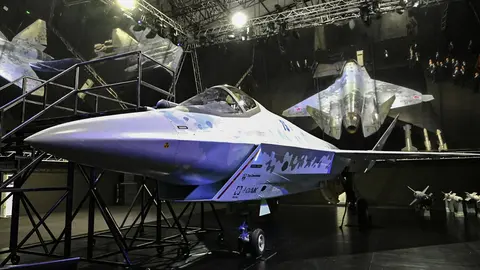Russia and Belarus began a large-scale military manoeuvre, the two countries' Defence Ministries said on Thursday, as tensions run high in eastern Europe.
The exercise takes place in southern Belarus, close to the border with Ukraine and is due to last for 10 days.
Troops will use five military training areas to practice what the Russian Defence Ministry described as "the suppression of and defence against external aggression."
The exercise comes amid a flurry of diplomacy as Western leaders try to avoid war in the region. There are fears that Moscow may be planning to invade Ukraine, after tens of thousands of troops were massed close to the border.
Russia has repeatedly denied such intentions and the military leaders involved in the exercises have also underlined that the deployments are purely for training purposes, pose no threat and are in line with international law.
The Russian soldiers are due to return to their bases at the end of the exercise, according to Moscow.
Russia has been moving heavy military equipment into Belarus over the past few weeks including S-400 air defence systems.
Furthermore, Sukhoi Su-25SM fighter jets have been moved over 7,000 kilometres from the Primorye region on the Sea of Japan to military airfields in the Brest region near the Polish border, according to Moscow.
The Russian Defence Ministry released a video showing many tanks with fir branches for camouflage, while live firing was visible and audible.
Belarus and Russia have also vowed to be transparent during the manoeuvre. Belarusian sources say more than 150 journalists have been accredited and three press tours are planned.
Western leaders have also beefed up defence capabilities in eastern Europe, alongside diplomatic efforts.
Hungary rejects more NATO troops
However, Hungarian Foreign Minister Peter Szijjarto told the European news channel Euronews that his country - a member of the EU and of NATO - did not require further NATO troops to be deployed to its territory to confront Russian aggression.
"We do not need additional troops on the territory of Hungary," he said late on Wednesday, adding that "there are already NATO troops in the country, namely the Hungarian army."
Hungary borders directly on Ukraine in the east.
The Hungarian army is "in the right condition" to guarantee the security of the country, the foreign minister said, adding that he was not in favour of further sanctions against Russia because they would "not work."
Hungary's right-wing nationalist Prime Minister Viktor Orban maintains a friendly relationship with Russia and its President Vladimir Putin.
Last week, Orban paid him a visit. The main topic was Russian gas supplies.












